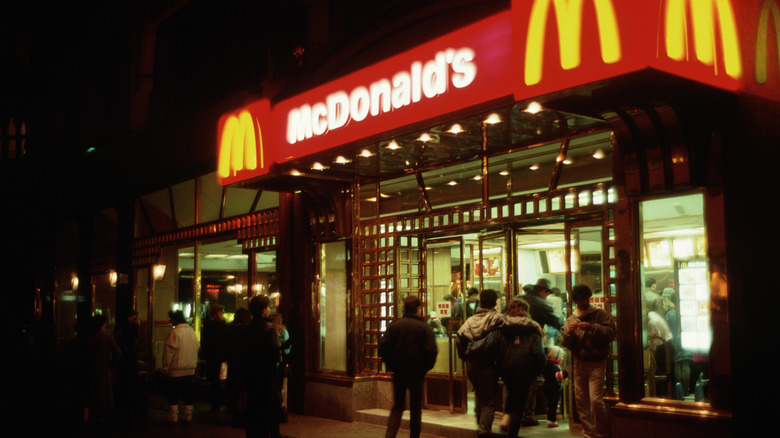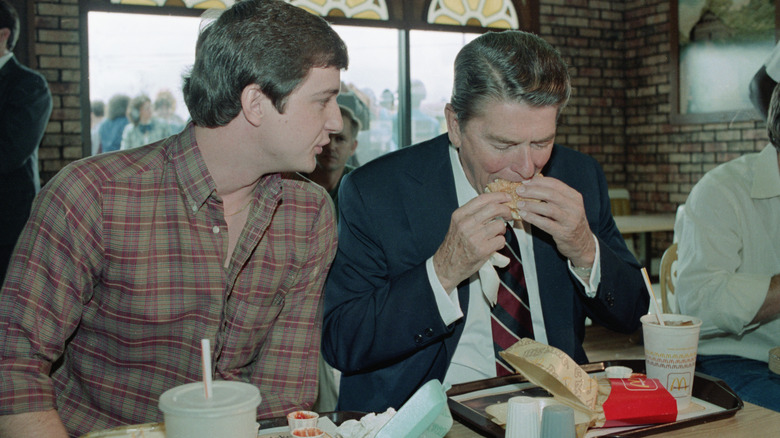The Vintage McDonald's Cutlery That Was 'Banned' For An Unexpected Reason
In the 1970s and 1980s, McDonald's was known for more than just Big Macs and Happy Meals. It sounds too absurd to be true, but the fast food giant accidentally became part of the earliest stages of the "War on Drugs." It involved a tiny plastic coffee spoon, a drug epidemic, and an eventual government crackdown.
Before we learned just how awful single-use plastic was, the innocent-looking utensil was first introduced as a convenient tool for stirring coffee. The offender was about five inches long and featured a small, flattened scoop at the end — just enough to stir a serving of sugar or cream into a cup of coffee. With the iconic golden arches as its handle, the spoon was another effort to add branding to the customer experience. But it wasn't long before the spoon found an unexpected second life outside of McDonald's dining rooms ...
Cocaine use was truly booming in the late 1970s and early 1980s, and its fans were always looking for an easy way to measure clean, consistent bumps of the drug. The McDonald's spoon just happened to be the perfect size and shape for this purpose. This little tool became so widely associated with cocaine that it soon earned the nickname "the McSpoon." Its popularity in both the underground drug world and upper-class dinner parties didn't go unnoticed. One Connecticut newspaper in 1979 remarked, "One thing is certain: From the Tiffany's set to the McDonald's crowd, New York is snowed in coke."
A crackdown on McDonald's spoons
The U.S. government soon took issue with the spoon. At a hearing with senators and anti-drug activists, a lobbyist for the drug paraphernalia trade quipped that, "This is the best cocaine spoon in town and it's free with every cup of coffee at McDonald's." Unfortunately, the joke backfired.
One of the activists attending, Joyce Nalepka, decided to personally call McDonald's then-president Edward Schmidt and ask him to replace and redesign the infamous McSpoon. Her talk must have been pretty persuasive, because the spoons soon disappeared from American McD's, replaced by a flat plastic coffee stir stick.
Over time, the McDonald's coke spoon has become something of a pop culture relic. It has appeared in online forums, drug history retrospectives, and even as one of the nostalgia buys on eBay, where vintage versions of the spoon occasionally sell as collector's items. Of course, McDonald's never created or distributed the spoon with any malicious intent. But in the eyes of law enforcement and drug culture observers, the spoon had become too closely linked to illegal activities.
The story of the McDonald's coffee spoon is a cautionary tale of unintended consequences. Even the most mundane products can be swept up in larger cultural trends, sometimes for the better, sometimes for the worse. Today, the tiny plastic spoon lives on as a quirky footnote in the surprisingly intertwined histories of fast food and America's War on Drugs.

